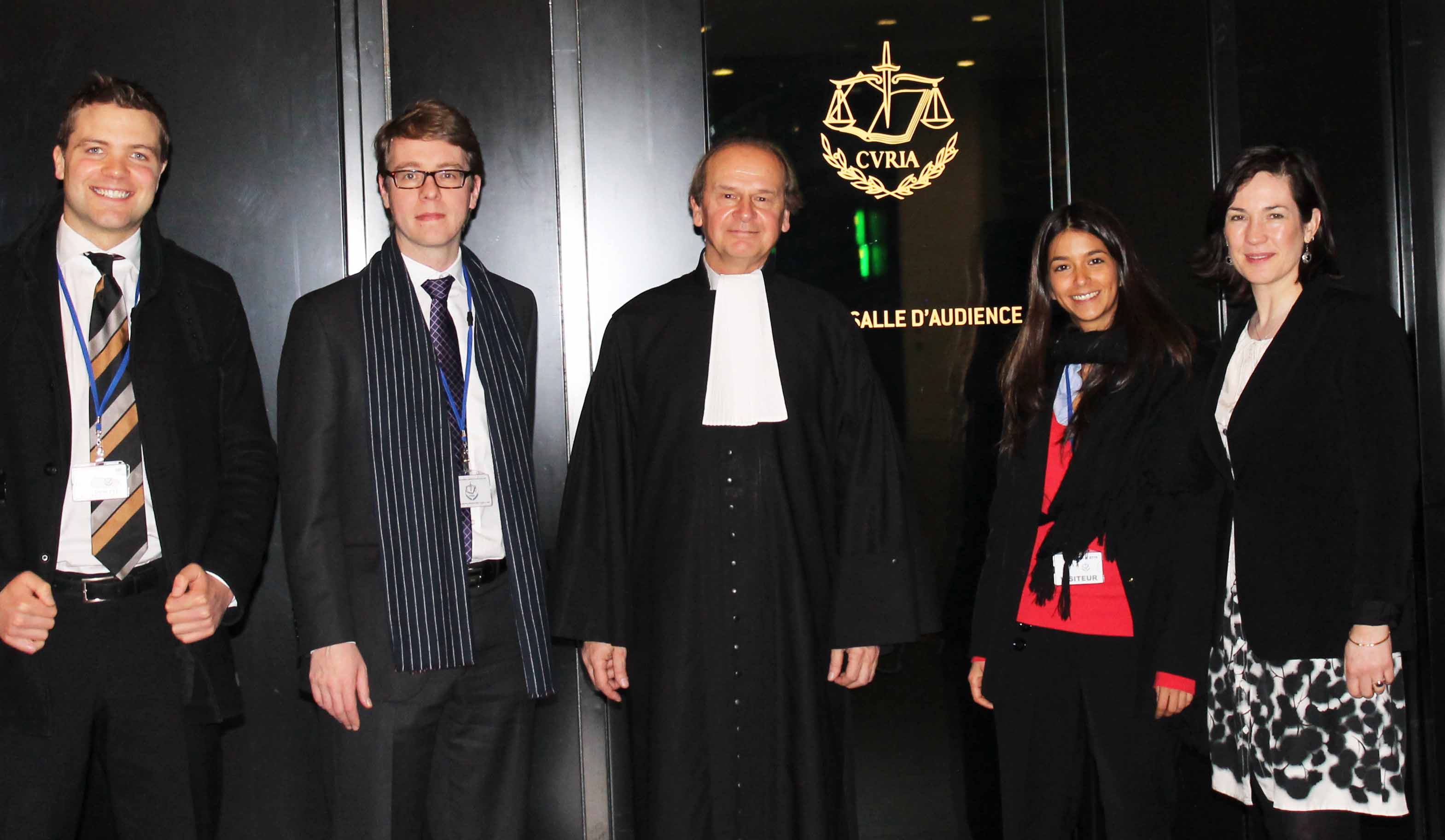Luxembourg, 21 February 2013 – At a public hearing before the Court of Justice of the European Union in Luxembourg on Thursday 21 February 2013, the Council of the European Union argued that secrecy about the positions of different Member States is necessary for its “effectiveness”.
Specifically, the Council defended withholding from Access Info Europe in 2008 the names of Member States in a document which contained proposals to revise the EU’s access to documents rules in a way which would limit EU transparency.
The hearing was held to consider the appeal by the Council against a March 2011 decision by the General Court (first instance court) which ruled that Access Info should have access to the document
Arguments centred on whether the public can know which Member State is proposing what during ongoing legislative processes, or whether transparency of this nature would seriously undermine the Council’s decision-making process.
The Council is supported in this case by the Czech Republic, Greece, France and Spain; the United Kingdom which is also party to the case did not make either a written or an oral intervention.
The Czech government raised the spectre of unfavourable newspaper headlines if the public were to know the positions governments take during legislative drafting in Brussels. The Greek government warned of a “danger of confusion in the public mind about the positions of Member States” as citizens might “misunderstand” that preliminary texts are not final.
The French government’s lawyer argued that transparency would permit “targeted lobbying” and is “not necessary for participation”, whilst the Spanish government’s lawyer questioned Access Info’s interest in accessing the requested document and noted that transparency revealing concessions made during negotiations would be a “sign of weakness” on the part of Member States.
These arguments were challenged both by Access Info Europe in its interventions and by the European Parliament intervening on behalf of the NGO, which stated that “citizens have a right to follow the democratic process” and that this is “an essential element of democratic control”. The Parliament rebutted arguments by the Council and the intervening Member States, pointing out that there can be no general rule of denying access to the identity of delegations and that transparency can indeed generate “public debate, media scrutiny, or even pressure”, but that this is democracy.
Helen Darbishire, Executive Director of Access Info Europe responded to the arguments raised at the hearing by stating that “The Council’s policy of systematically redacting identities of Member States has for too long permitted unequal access to the legislative process, limiting participation to Brussels insiders, and alienating the wider European public. Access Info is challenging this so as to redress the balance in favour of participation and accountability.”
During the proceedings, the Council asserted that the reform of the EU’s transparency rules was a “sensitive” topic, hence the need to protect the identities of Member States making legislative proposals. Two main arguments were put forward to substantiate this claim: the danger of outside pressure, and the loss of flexibility for delegations, which would be unable to modify their initial positions due what the Council described as the “political cost” that this might entail with their electorate.
Onno Brouwer, the lawyer representing Access Info Europe emphasised in his oral intervention that there was no rule in the EU Treaties or the EU Transparency Regulation that provided that identities of delegations were to be kept confidential and that “citizens could not as a general rule be prevented from knowing – who proposes what – in the EU legislative process, as proposals made by national delegations in the working parties of the Council do not only affect citizens of the country they originate from but citizens of all EU Member States”. He noted that “Citizens in Luxembourg are affected by the proposals made by delegations of other Member States”.
Notes
1. The hearing in the case of The Council vs. Access Info Europe (C-280/11 P) results from a legal challenge presented by the Council which seeks to overturn the ruling of 22 March 2011 in which the General Court found in favour of providing Access Info with full access to a legislative document, including the names of Member States putting forward proposals. The document in question is a summary of a Council meeting about the reform of the EU’s transparency rules, namely Regulation 1049/2001 regarding public access to EU documents.
2. The next step in the case will be an opinion of the Attorney General of the EU scheduled for 16 May 2013. A ruling is expected before the summer vacations.
For more information, please contact:
Pam Bartlett Quintanilla, Access Info Europe
pam@access-info.org | +34 699 35 42 15

